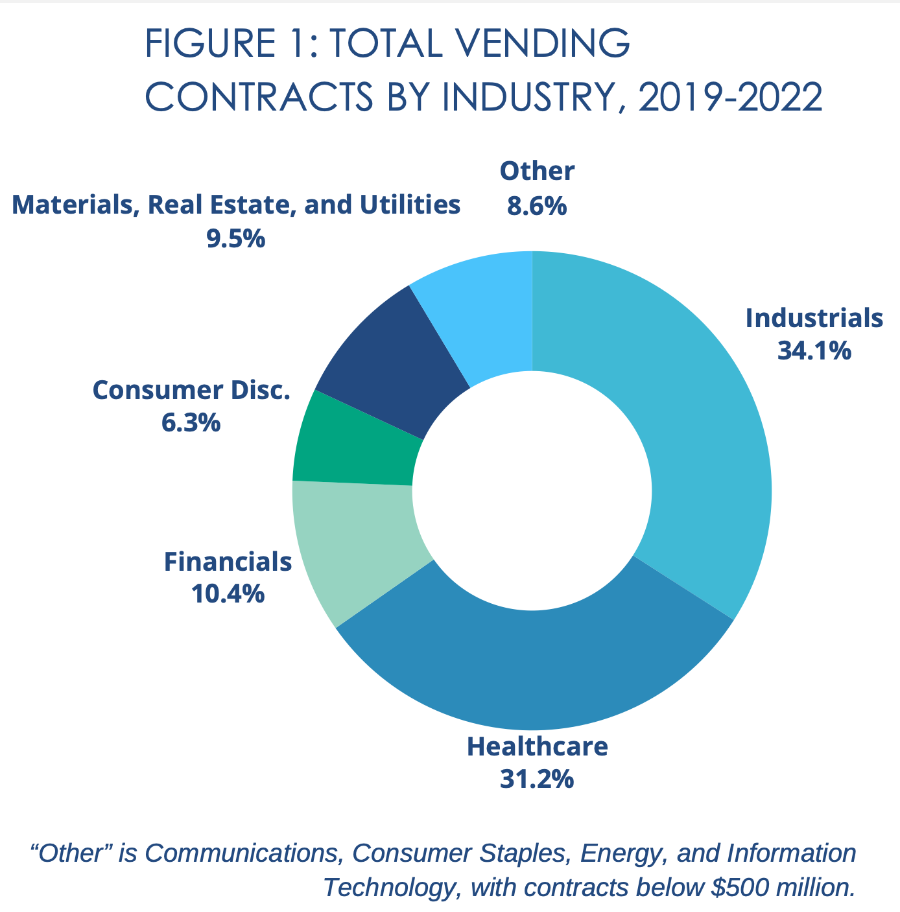Letter from the Research Analyst: Takeaways from FreeCap’s Prison Vending Data (3/3)
Research Analyst Erika Folgar recaps the biggest takeaways from FreeCap’s latest Prison Vending Relationship Dataset featured in FreeCap Financial’s 2023 Criminal Justice Report. This is the final post of a three-part expert series on FreeCap’s data findings. Read the full series on our blog or read the full report on our website.
Why do we need a Prison Vending Relationship Dataset?
The financial relationship between companies and prisons is harmful for several reasons. As described in the last blog post, the use of prison labor still exists in company supply chains. This financial exploitation of incarcerated laborers causes these companies to incur operational and reputational risks. A 2017 study by the Prison Policy Institute found incarcerated individuals working the most common prison jobs earn 86 cents to $3.45 per day on average and have few rights and protections. Prison work is also compulsory and is subject to little to no regulation. Other companies do business directly with corrections departments, contributing to the mass incarceration crisis and supporting the injustices within the prison system. That’s where our new Prison Vending Relationship Dataset comes in—in 2022, we became the first-ever data provider to quantify the relationships companies have with prisons. Our new report offers the latest data on company transactions with prisons, ranking every company in the Russell 3000 Index based on their dollar amount transactions with prisons. By tracking over $8.6 billion in contracts between state and federal prisons and the Russell 3000 Index and quantifying how much each company has made since 2019, we’ve brought an unprecedented level of transparency to companies doing business with prisons. Our dataset covers 33 states, representing over 70% of the US incarcerated population.
The Data
Here are our main takeaways:
Between 2019 and 2022, the largest share of state and federal prison contracts went to the Industrials sector, which includes logistics companies and utilities. Industrials contracts totaled $2.9 billion or 34% of all Russell 3000 vending contracts.
Vending contract amounts between the Russell 3000 and prisons total at least $2 billion annually.
The company with the most significant vending relationship with prisons is The GEO Group Inc., with transactions totaling over $1.5 billion between 2019 and 2022. GEO Group owns, leases, and operates prisons, immigration detention centers and residential reentry centers. According to AFSC Investigate, while prisons claim the work of inmates is voluntary, their “inmate handbooks” explain that incarcerated employees can be threatened with punishment.
Why This Matters
This unique dataset is the only one that quantifies the vending relationships of 3,000 companies and corrections departments across the United States. It allows investors to benchmark thousands of companies and further evaluate the reputational risk of those in their portfolios. Aligning investments with racial equity values has been made easier with this data, and it is available for subscription through FreeCap Financial.
What You Can Do
To combat the effects of mass incarceration, it is crucial to direct money and resources towards change-makers and to call attention to those falling behind in reform efforts. FreeCap invites you to join us in the fight to divest from prison labor and invest in freedom.
While we’ve highlighted some important insights on prison labor use in the post, our full Criminal Justice Report provides even greater, unprecedented transparency into the criminal justice footprints of the 100 largest companies in the US. Our data subscription offering and custom benchmarking report also help you identify the companies in your portfolio that are leading and lagging in criminal justice reform.
Erika Folgar is a Research Analyst at FreeCap Financial who works closely with FreeCap’s scoring methodology and co-wrote and edited the 2021 and 2023 Criminal Justice Report. Before her role as a Research Analyst, she graduated from Vassar College in May of 2022 with B.A. in Economics and correlates in Mathematics and Latin American Latinx Studies. In 2021, she received the Thompson Bartlett Fellowship for Economics to study at the University of Texas at Austin.

